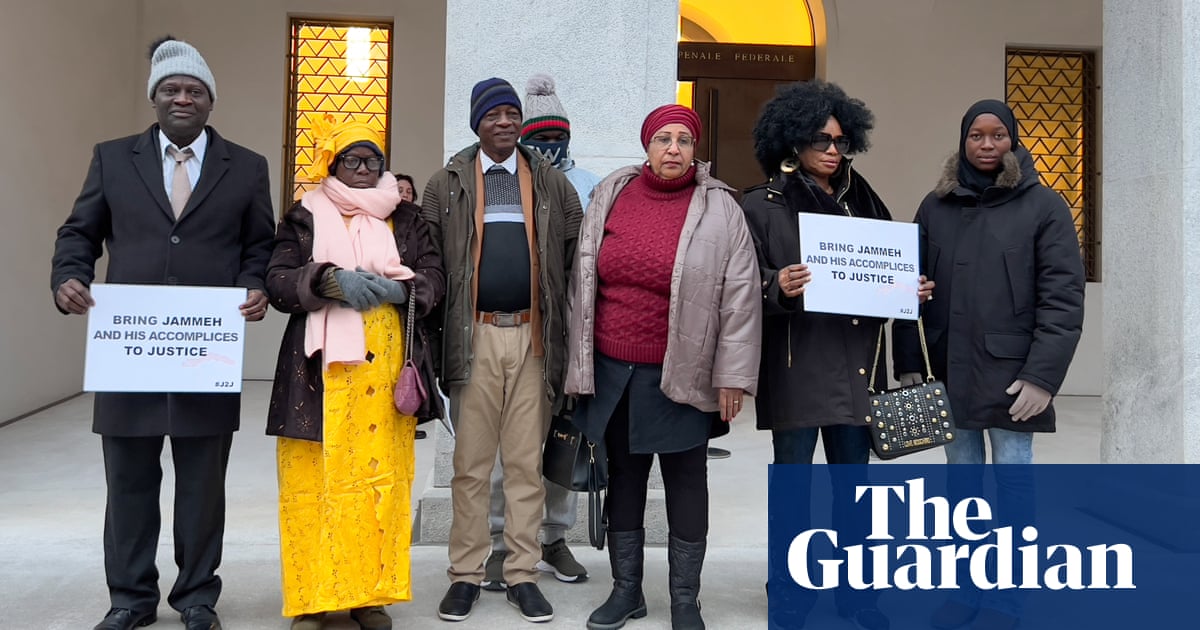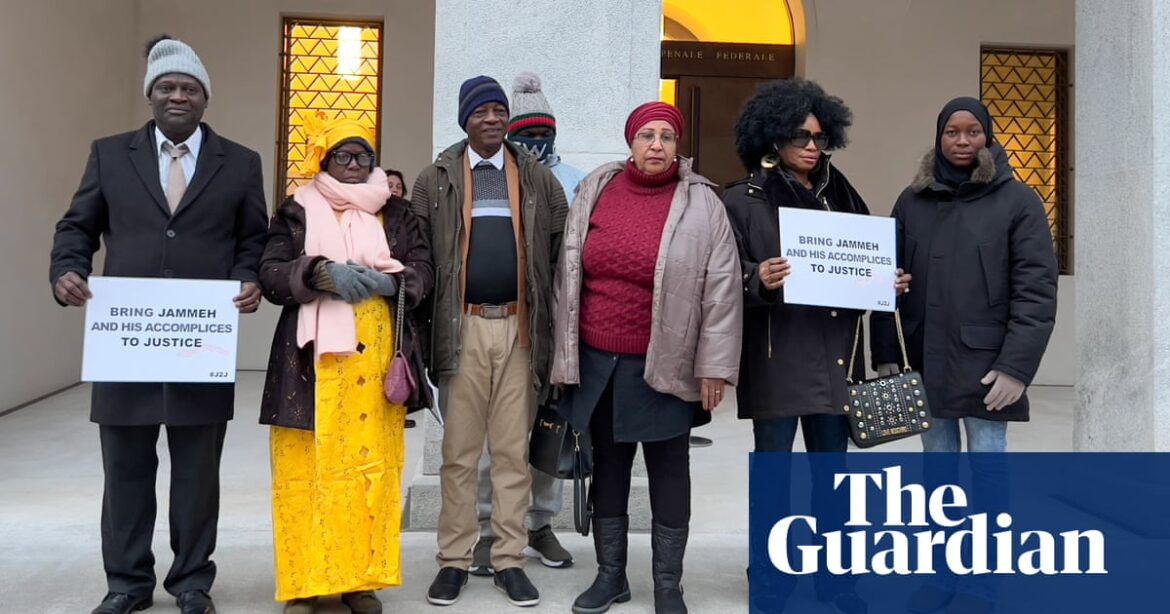
A former minister from Gambia is now facing trial in Europe for crimes against humanity, marking the first time a high-ranking official is being tried under universal jurisdiction principles in the continent.
In 2017, Ousman Sonko, who served as interior minister for the deposed dictator Yahya Jammeh in a west African nation, was detained in Bern when he sought refuge in Switzerland.
Madi Ceesay, a 67-year-old plaintiff, expressed to Reuters that the wait has been lengthy and filled with feelings of anger and anxiety. However, she now feels hopeful and joyful, believing that justice is within reach.
The Swiss attorney general’s office has stated that they have charged 54-year-old Sonko with aiding and taking part in the oppressive actions of Jammeh. The office described Jammeh’s 22-year rule as marked by the consistent use of cruel acts such as torture, rape, unlawful killings, unjust imprisonment, and enforced disappearances.
According to the statement, Sonko is accountable not just for his personal participation in the alleged crimes, but also for his responsibilities as the interior minister overseeing the police and prison system.
Sonko has been accused of involvement in killings, torture, rape, and unlawful detentions that occurred between 2000 and 2016. He has denied these accusations.
Sonko was taken into custody following a criminal complaint filed by TRIAL International, a non-governmental organization based in Geneva. The complaint was filed under the principle of universal jurisdiction, which permits the prosecution of individuals suspected of grave offenses outside of the jurisdiction where the crimes allegedly took place.
In November, a court in Germany applied the principle of universal jurisdiction to find Bai Lowe, a Gambian man, guilty of crimes against humanity, murder, and attempted murder for his role in a death squad responsible for the deaths of a journalist and government opponents in the Gambia.
On Monday, the trial of Sonko began in Bellinzona, Switzerland. The complainants arrived together, carrying signs that stated: “Hold Jammeh and his accomplices accountable for their actions.”
The trial garnered global attention as it progressed. Philip Grant, executive director of Trial International, stated to AFP that the primary focus would be on the start of the trial and the long-awaited justice for the entire country of Gambia. The trial of Sonko marks the highest-ranking former official to be prosecuted under the universal jurisdiction principle in Europe.
Some see the trial as an important part of the larger mission to confront Jammeh’s impact. According to Sirra Ndow, coordinator of the Jammeh2Justice campaign, the trial of Ousman Sonko is a significant step towards seeking justice for victims and their loved ones who suffered under Jammeh’s regime. Ndow believes that the Sonko case should encourage further efforts in the Gambia to prosecute crimes committed during Jammeh’s rule, ensuring that the responsible individuals are held accountable for their heinous acts.
The lawyer for the defendant stated his intention to request that the court drop the case due to concerns with the investigations and hearings.
Philippe Currat, in an interview with Reuters, expressed his shock at the handling of this file from the very beginning. He argued that certain evidence presented in the indictment was gathered through undisclosed hearings in the Gambia and that those interviewed were not made aware of their rights.
Over the next few weeks, the court is anticipated to receive testimony from a number of Gambian individuals. One of the individuals named in the charges is Binta Jamba, who has accused Sonko of committing multiple acts of rape against her between 2000 and 2002, following the murder of her husband in relation to an alleged plot to overthrow the government.
The accusation also claims that he kept her imprisoned for five consecutive days in 2005, during which he physically assaulted her and committed multiple acts of sexual assault.
Disregard the advertisement for the newsletter.
after newsletter promotion
“I have been grappling with this for nearly 25 years,” she stated in a message to Reuters. “Without receiving justice, I will never find peace in my life.”
Currat stated that he has evidence to show that Sonko was outside of the country for a significant portion of the time when the rape allegations were made.
He will also contend that a number of the accusations, including those of rape, occurred before the revisions to Swiss legislation that permit the court to preside over grave offenses committed outside the country. This suggests that the accusations may not be considered valid.
In an interview with AFP, Currat stated that the responsibility lies with the national intelligence agency, not his client. Currat clarified, “Ousman Sonko has never had any actual or legal authority over this agency.”
If found guilty, Sonko could be sentenced to life in prison.
Fatoumatta Sandeng, the daughter of Solo Sandeng who was a Gambian opposition activist that was killed while in custody in 2016, expressed her anticipation of Sonko’s court appearance. She stated that if people are not held responsible, similar events will continue to occur not just in Gambia, but also in Africa and all around the world.
This report was contributed to by Reuters and Agence France-Presse.
Source: theguardian.com



